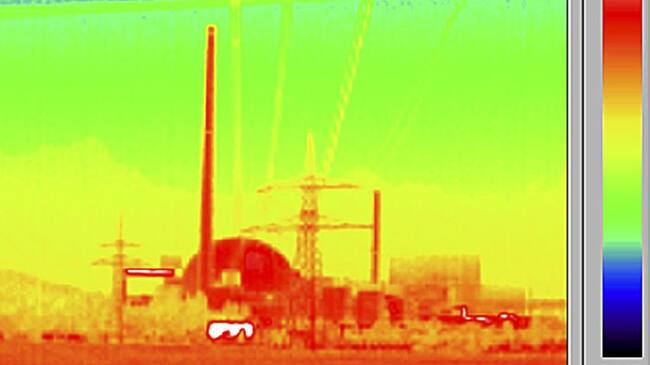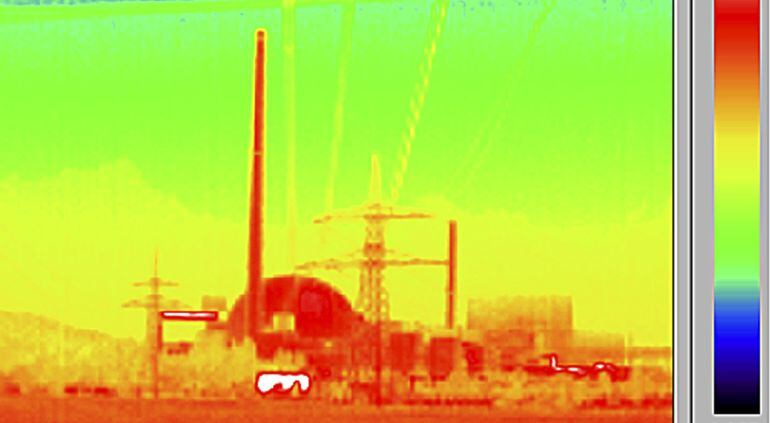"En el futuro nos relacionarán con la era nuclear"
Alejandro Cearreta, geólogo de la UPV, miembro del grupo que ha fechado en el 16 de julio de 1945 el inicio del Antropoceno

File image taken with a thermographic or infrared camera showing the reactor building of the EnBW nuclear power plant in Philippsburg, southwest Germany, July 5, 2011. Germany's biggest utilities have set aside tens of billions of euros to fund the country's exit from nuclear power from 2022, when the last reactor leaves the grid and the clear-up begins. But as an energy crisis puts the value of the assets underpinning those provisions at risk, concerns are growing that taxpayers may end up footing part of the bill, undermining an ambitious shift to renewable power on which Chancellor Angela Merkel has staked a hefty chunk of political capital. TO GO WITH GERMANY-NUCLEAR/ REUTERS/Kai Pfaffenbach/Files (GERMANY - Tags: ENERGY ENVIRONMENT) / KAI PFAFFENBACH (Reuters)

Un grupo internacional de investigación, en el que participa la Universidad del País Vasco, ha identificado el 16 de julio de 1945 como la fecha de inicio de un nuevo tiempo geológico en la Historia de la tierra.
'En el futuro nos relacionarán con la era nuclear'
00:45
Compartir
El código iframe se ha copiado en el portapapeles
Bilbao
El profesor de geología de la UPV, Alejandro Cearreta, uno de los 26 investigadores del estudio internacional sobre el Antropoceno, nos ha contado en "La Ventana Euskadi" cómo han llegado a esta conclusión y por qué.
La propuesta, firmada por 26 miembros del grupo de trabajo, pertenecientes a universidades y centros de investigación de los cinco continentes, y que incluye a Jan Zalasiewicz (Universidad de Leicester, UK) como responsable del grupo, al premio Nobel Paul Crutzen y a Alejandro Cearreta de la UPV/EHU, mantiene que podemos considerar el inicio del Antropoceno como el momento de la detonación de la primera bomba nuclear de la historia que tuvo lugar el 16 de julio de 1945. El inicio de la era nuclear marca el punto de inflexión histórico, pues a partir de entonces la especie humana tuvo acceso a una nueva y enorme fuente de energía, y es, asimismo, un lapso temporal que puede ser localizado dentro de los estratos geológicos utilizando una gran variedad de evidencias geológicas. Esta radiación global de origen humano resume de un modo óptimo las múltiples evidencias de un cambio planetario provocado por nuestra especie que estamos experimentando.
El próximo año el Grupo de Trabajo sobre Antropoceno elaborará las recomendaciones sobre si esta nueva unidad de tiempo debería ser formalizada oficialmente e incluida en la tabla del tiempo geológico y, en ese caso, cómo debería ser definida y caracterizada.





